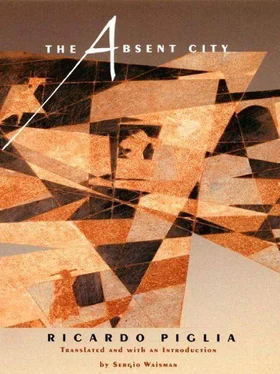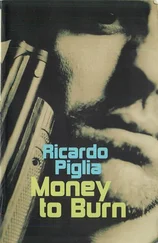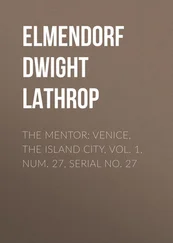She knew the Clinic was a sinister place. When Doctor Arana came in, he confirmed her worst fears. He seemed to be there just to make every single paranoid delirium come true. A glass skull, the red windows facing out, white bones shining in the artificial light. Elena thought the man was a magnet that attracted and drew the iron shavings of the soul to itself. She was already thinking like a madwoman. She felt her skin release a metal dust. That is why her body was completely covered, including gloves and a long-sleeved blouse. The only part exposed was her face, the rusted skin of her external gears. It made her sick to think about the metal container from which they would put the drops of oil on her. She closed her eyes so she would not see anything, and began to go over what she knew about the doctor. Arana, Raúl, Ph.D. in Psychiatry. Disciple of Carl Jung . Studies undertaken in Germany and Switzerland. The treatment consisted in converting psychotics into addicts. The drugs were administered every three hours. The only way to normalize a delirium was to create an extreme dependency. He had just returned from giving a seminar at MIT on “Hypochondria and the Fantasies of Pregnancy.” Elena had herself committed with the double purpose of carrying out an investigation and of controlling her hallucinations. She was sure that she had died and that someone had transferred her brain (sometimes she said her soul) into a machine. She felt she was completely alone in a white room full of tubes and cables. It was not a nightmare, it was the certainty that the man who loved her had saved her from death and had incorporated her into an apparatus that transmitted her thoughts. She was eternal and cursed. (You cannot have one without the other.) That is why the judge had chosen her to infiltrate the Clinic. A male nurse met her at the entrance. As soon as she walked through the bars she decided she would tell them the truth. She was a madwoman who believed she was a policewoman who was forced to be hospitalized in a psychiatric clinic; and she was a policewoman trained to pretend that she was in a machine exhibited in a room of a Museum. (The only thing she had to do was not reveal the name of a certain man, whom she would call Mac from now on. Anything else, including the truth, would be an invention in which to hide and keep him safe.)
“That is why you say that you never lie,” Doctor Arana said, smiling.
“I did not say that,” Elena said, “do not play dumb. I have been asked to investigate you, doctor, that is why I am here.”
He turned around and smiled again.
“Very well,” he said, “come with me.”
The hallway led to the operating rooms. The rubber carpets prevented all electrical contact and negated the friction from the aluminum wheels. The trees in the garden could be seen through the tall windows.
“And who gave you this assignment?”
“A judge,” she answered.
There were bars in front of the windows, and a portrait of Doctor Arana on the wall. Many of his patients were painters who paid him with their own work.
“They are going to flatten this pigsty.”
“What does it mean to be a machine?” Doctor Arana asked.
“Nothing,” she said. “A machine does not exist, a machine functions.”
“Very ingenious,” Arana replied.
The Clinic was a large rectangular construction, divided into zones and pavilions, like a jail.
“In this first room you have the catatonics. They are completely gone,” Arana explained; “technically, they have gone over to the other side and cannot return.”
The beds looked as if they held embalmed bodies, a series of white mummies wrapped in sheets and blankets. A woman sitting in a metal chair was staring at the light in the window. Elena tried to take note of the layout of the alarms and the side doors. She was going to escape as soon as she managed to see Mac, she thought they had him locked up in one of the wings by the end of the garden. She had drawn up a map in her memory and was completing the diagram as they went along. She worked with a scale of 100 to 2, to make the information easier to transmit. Each zone had its own control unit and surveillance system. The small cameras were mounted on the ceilings. Elena imagined the closed-circuit and the control room. She had once seen the intelligence center for Penn Station in New York. All the passengers were recorded in the hallways and the platforms, and a policewoman (a real policewoman) — fat, with makeup, black glasses, and dressed in blue — sat on a rotating chair, alone in a white basement, surrounded by TV screens, watching the images that covered the walls. She had a microphone attached to her blouse that captured her voice and her breathing. In the bathrooms, men addicted to vices pursued those vices. She spied on them and relayed the information to the patrols working on the surface. Three policemen were kicking a junkie on the floor of the hallway that led to platform number six (the exit toward Jamaica Station, in Long Island). They were in the section of the Clinic that contained the Carson Café. A bar that looked as if it were from the fifties, with dim lights and tables against the walls. A place where expatriates, spies, foreign journalists, and married women looking to hook up spent their time.
“They call it the Bar of the Lost Souls,” Arana explained.
Elena found a place at the bar. She wanted a beer. The bartender smiled. Perhaps they had already given her the injection. Imaginary landscapes had been fully explored by Doctor Arana. Reality was made up of personal visions. The Clinic was the inner city and each person saw what they wanted to. No one seemed to have their own personal memories. The bartender treated her as if she were a friend of his. In the mirror, Elena saw her mother’s face in her house in Olavarría. Everyone was an addict, submerged in their own deliriums and ghettos, using their own personal hermetic metaphors. The guy next to her at the bar introduced himself by raising his glass.
“My name is Luca Lombardo,” he said. “I’m from Rosario, they call me the Tano, they locked me up here for my own protection. What took place in the province of Santa Fe is a tragedy, they killed children, women, the men had to show the palms of their hands and if they saw that they were laborers they’d shoot them right there on the spot. The only thing left is the desert and the river. Many escaped to the islands and are living in the middle of the tall bamboo plants. They live like Indians, in the Lechiguanas Islands, wherever they can, they heat water in little pans to make mate. They’re waiting for the soldiers to leave.”
The Tano stared at the bottles behind the counter as he spoke. The bar was packed. A disc jockey put on an album by The Hunger. Mobs of people were roaming through the place. They all looked alike, sallow and dressed in fringed shirts and leather. Lumpen from the surrounding hotels and tense solitary tourists in search of pleasures not indicated in Michelin Guides. Very old or very young men walked in discontinuous waves in opposite directions. The attractive women, on the other hand, with their prostheses and their melancholy eyes, stood to the side, in the corners, or sat at the bar, like Elena. At that time of day the halls with the games of logic were already open. In the place across the way Elena saw a very young super-D with eight-diopter glasses solving syllogisms at supersonic speeds. He caught them in the air and ran up points with the elegance of a bird. His opponent was a shy and smiling youth with a dark complexion who spoke with a sing-songy Paraguayan accent and was the best Frege semanticist in the city. He read a comic book calmly as he waited his turn, sneaking glances out the side of his magazine at the rising scores of the super-D youngster.
Читать дальше












